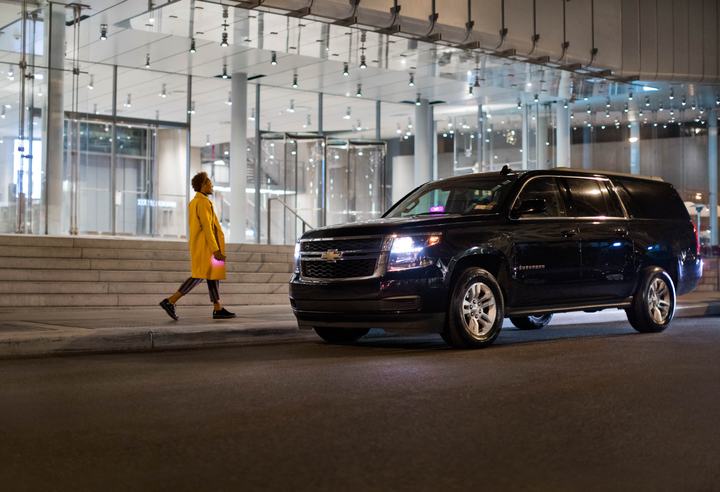Uber has posted a $1bn (£790m) loss as the ride-hailing firm delivered its first figures since a disappointing flotation earlier this month. The quarterly loss came despite a 20% a rise in revenues to $3.1bn and increase in monthly active users to 93 million. The results were in line with many analysts’ forecasts and may… Continue reading Uber posts $1bn loss weeks after flotation
Tag: Lyft
Uber lost another $1B last quarter
Uber posted losses of $1 billion on revenue of $3.1 billion for the first quarter of 2019 in what was the company’s first earnings report as a public company. Gross bookings rose 34% to $14.6 billion in the same time period, as Uber Eats continued to show notable growth. Amid both positive and negative stock… Continue reading Uber lost another $1B last quarter
A Year of Carbon Neutral Lyft Rides
A year ago, we became one of the world’s largest purchasers of carbon offsets, and made all Lyft rides carbon neutral. And last September, we took it a step further and committed to full carbon neutrality. Since April 2018, we’ve effectively eliminated the amount of carbon that it would take 2.4 million acres of trees… Continue reading A Year of Carbon Neutral Lyft Rides
Supporting Transgender Drivers
Since the process for transgender drivers to change their name and gender on legal documents is complex and varies by state, we’re partnering with the National Center for Transgender Equality (NCTE) to offer legal support and resources to drivers who are transitioning. Transgender and non-binary drivers who have completed more than 100 rides on the… Continue reading Supporting Transgender Drivers
Uber launches a Jump e-bike pilot in London, one year on from winning taxi license appeal
After admitting it had to modify some of its Jump electric bikes to fix braking issues — the same problem that had halted Lyft’s e-bike business — Uber is getting back on its bike, so to speak. Almost one year after nearly getting driven off London’s streets completely by losing its taxi operating license, Uber… Continue reading Uber launches a Jump e-bike pilot in London, one year on from winning taxi license appeal
Automakers have a choice: Become data companies or become irrelevant
Jeff Peters Contributor Jeff Peters, PhD is a principal at Autotech Ventures, investing in transportation startups. He has published academic and media articles on transportation, optimization, autonomous driving and AI. More posts by this contributor Will self-driving cars kill parking? The AI in your non-autonomous car While Bezos amassed billions, Apple took over our culture,… Continue reading Automakers have a choice: Become data companies or become irrelevant
Reach Now acquires Validated, a Seattle startup providing transportation incentives
Validated CEO Tov Arneson pitches at Techstars Seattle Demo Day. (GeekWire Photo) Reach Now is bringing Seattle startup Validated under its roof as the joint mobility venture between BMW and Daimler continues to expand its offerings. Validated allows businesses and employers subsidize transportation costs for people traveling to their locations. To provide those incentives, Validated… Continue reading Reach Now acquires Validated, a Seattle startup providing transportation incentives
UPDATE 1-Uber and Lyft to turn the wheels on car ownership -industry experts
TORONTO (Reuters) – Ride-hailing apps like those of Uber Technologies and Lyft Inc are expected to alter the state of car ownership towards subscription-based services and shared ownership, auto industry experts said at a conference on Wednesday. FILE PHOTO: The Logo of taxi company Uber is seen on the roof of a private hire taxi… Continue reading UPDATE 1-Uber and Lyft to turn the wheels on car ownership -industry experts
1 in 6 Uber, Lyft Vehicles Have Current Safety Recall, Study Finds
Consumer Reports could not determine if any customers have been injured due to safety defects. Photo via Lyft. A recent study by Consumer Reports found that one in six vehicles on the Uber and Lyft platforms have an open recall for an unaddressed safety issue. Consumer Reports based its findings on data collected from 94,000… Continue reading 1 in 6 Uber, Lyft Vehicles Have Current Safety Recall, Study Finds
Car rental rates will fall by 2.5% in Spain over the next 12 months
Posted 05/22/2019 1:56:43 PM MADRID, May 22 (EUROPA PRESS) – Car rental rates could fall by 2.5% in Spain due to strong market competition and excess capacity, according to a study by American Express Global Business Travel (GBT). At an international level, the data is more positive. The study predicts that tariffs will increase slightly… Continue reading Car rental rates will fall by 2.5% in Spain over the next 12 months

